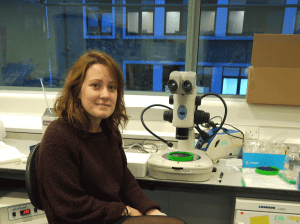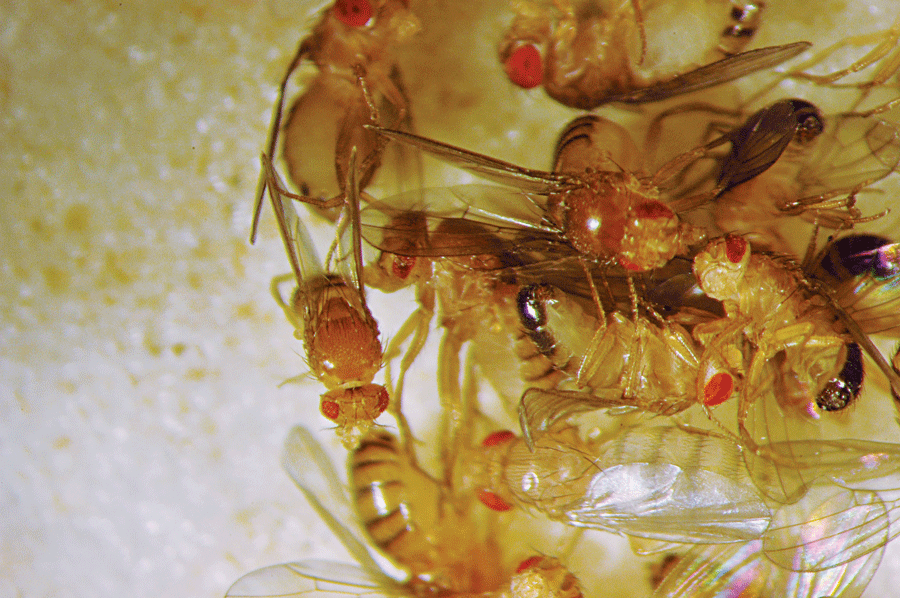Ariana Gatt talks about pharma, fruit fly research, and Alzheimer’s and Parkinson’s disease.

In 2008 I graduated from the University of Malta with a B.Sc. in Chemistry and Biology. Then, I worked as an R&D chemist with SoleaPharma Ltd., which also allowed me to spend six months training in pharmaceutical chemistry in Spain at the mother company Gadea Pharmaceuticals. I learned a lot in this period—not only lab work skills, but also about the whole business and industry. However, after two years working in the pharma industry, I realised I still wanted to further my studies.
I had always dreamed of studying abroad and experiencing a university in another country, so I applied for Masters courses in the UK. I had realised by this point that I wanted to carry out biomedical research, with a particular interest in neuroscience. I read for an M.Sc. in molecular sciences and biomedical research at King’s College London, funded by an EU funded STEPS scholarship. The M.Sc. opened the door for a Ph.D. in the same lab, which I am currently finishing .
For my Ph.D., I am investigating the role of mitochondrial dysfunction in neurodegeneration. Mitochondria produce energy for our cells. They are especially important in brain cells, since the brain uses 20% of the body’s energy. In neurodegenerative diseases, such as Alzheimer’s disease and Parkinson’s disease, mitochondria stop functioning properly, leading to a loss of energy in the brain. This may contribute to the eventual death of brain cells. In my project, I am modelling the loss of mitochondrial function in fruit flies (Drosophila melanogaster) to understand the early stages of neurodegeneration. Fruit flies and humans share many genes and therefore, studying the genes involved in mitochondrial dysfunction in the fly allows us to find potential early treatments to prevent irreparable damage in human neurodegenerative diseases.
Part of my Ph.D. focuses on studying human tissue from patients who have died from these diseases. These post-mortem tissue samples are obtained from UK brain banks. I am using them to identify genes that are involved in these diseases.
I don’t know what lies ahead in my career path. I hope it will involve answering questions regarding brain function and helping to solve the many puzzles related to neurodegenerative disease.





Comments are closed for this article!